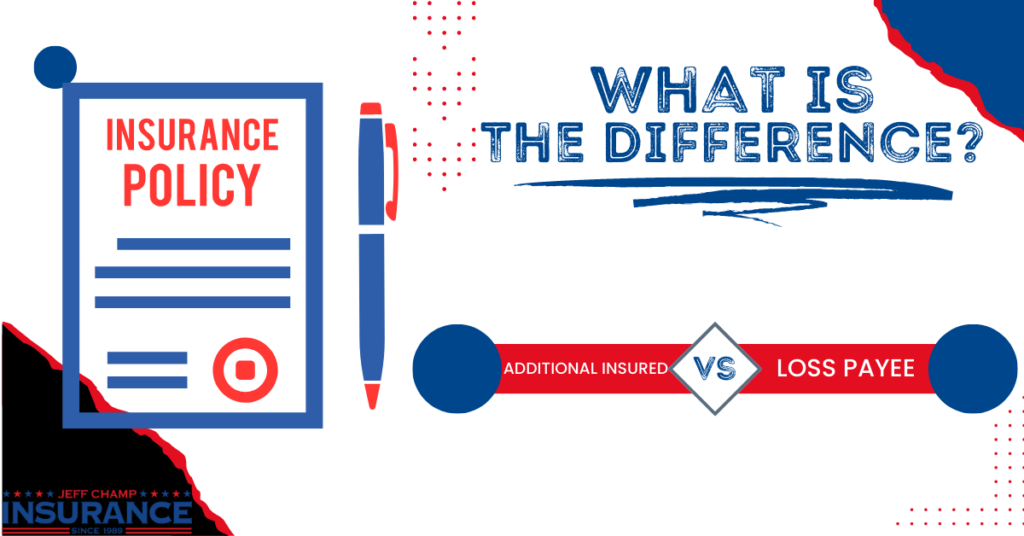Hello there!
As your trusted Farmers Insurance agent, Jeff Champ, my commitment is to keep you informed and help you make sense of the often intricate world of insurance. In today’s blog, we will delve deeper into two terms that are frequently misunderstood in the insurance realm: ‘Additional Insured’ and ‘Loss Payee’. By understanding what each term means and the implications of these roles, you can make more informed decisions about your insurance policies.
Let’s take a closer look at each term, their roles in insurance coverage, and the differences between them.
What is an Additional Insured?
An Additional Insured refers to an individual or entity that, although not automatically included as an insured party under the insurance policy of another, receives a degree of protection under that policy. This status isn’t automatic – it requires an endorsement to the policy to take effect.
Once listed as an Additional Insured, this party is protected under the named insured’s policy. They can file a claim if they suffer a loss or are sued due to the named insured’s actions or negligence.
Consider this example: If you are a tenant and you inadvertently cause a fire in your rented property, your landlord, if listed as an Additional Insured on your renters insurance policy, can file a liability claim with your insurance company. This provision protects the landlord from potential liability associated with your actions.
What is a Loss Payee?
A Loss Payee is an individual or entity that is entitled to receive claim payments directly from the insurance company in the event of a loss. This terminology is most commonly found in property and auto insurance. For instance, if you have financed your car through a loan, your lender will likely be listed as a Loss Payee on your auto insurance policy. If your vehicle is damaged in an accident, your insurance company will make the claim payment directly to your lender, protecting the lender’s financial interest in the vehicle.
Diving Deeper into the Differences
At first glance, the roles of an Additional Insured and a Loss Payee might seem similar. However, the core difference lies in the reasons each party is listed on an insurance policy. An Additional Insured is added to receive coverage benefits, safeguarding them against potential lawsuits or claims resulting from the actions of the policyholder.
Conversely, a Loss Payee is listed to ensure that they receive compensation for their financial interest in the insured property. This is typically a lender or leasing company that has financed a property or vehicle and wishes to protect their financial stake.
Moreover, the Loss Payee status offers security to lenders in the event of damage or loss to the property they have an interest in. On the other hand, Additional Insured status extends liability protection, allowing another party to benefit from your insurance coverage.
To Summarize
In essence, including an Additional Insured to your insurance policy extends your coverage to them, offering protection against potential legal or financial consequences related to your actions. Conversely, including a Loss Payee on your policy ensures that this party receives compensation, safeguarding their financial interests in your insured property.
Both Additional Insured and Loss Payee play pivotal roles in different scenarios, and understanding these roles can help you better navigate your insurance needs and obligations.
As always, my role is to help clarify these points and guide you through your insurance journey. If you have any questions, concerns, or need more detailed explanations, please feel free to reach out. Together, we can ensure you have the coverage you need to stay protected and confident.
Peace of mind, every time,
Jeff Champ, your Farmers Insurance Agent


